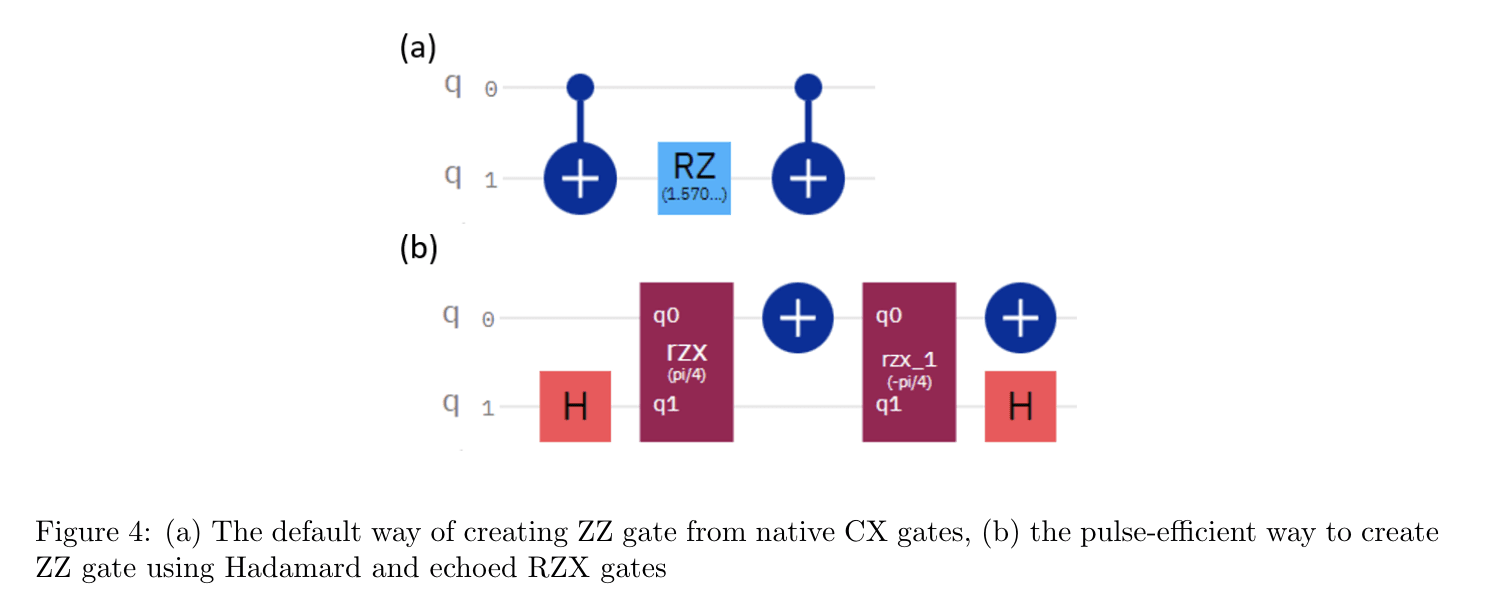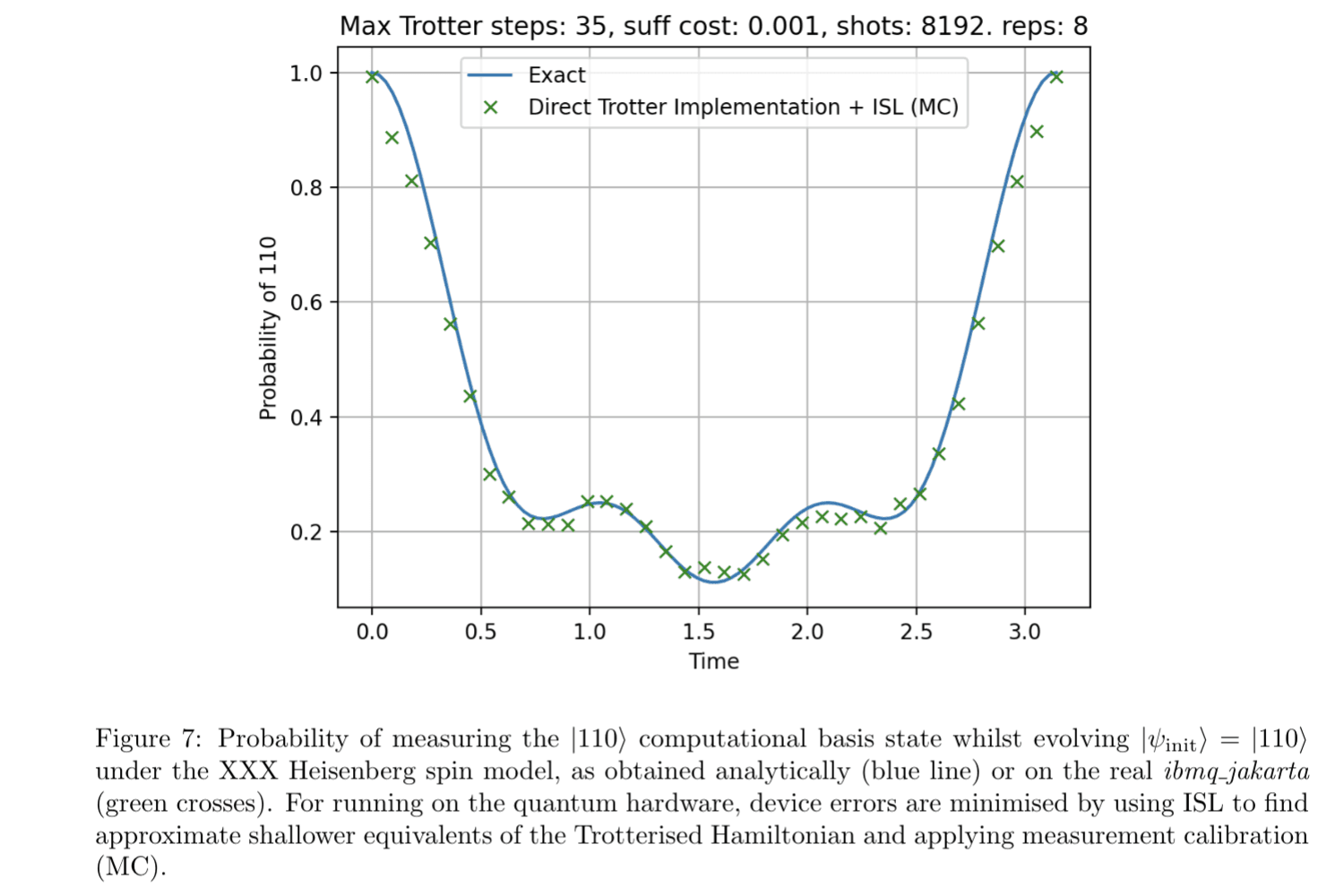IBM Quantum Awards: Open Science Prize Statistics
- 2.7 billion Total circuit executions
- 65 million Qiskit Runtime executions
- 84 different countries represented
- 55 submissions
- 2.5 times more registrations than last year
The theme of this year’s challenge was quantum simulation, because we foresee the simulation of physical systems to be a potentially useful near-term application of quantum computers. We asked competitors to simulate a Heisenberg model Hamiltonian for a three-particle system on the 7-qubit IBM Quantum Jakarta processor. The winning award went to the participants who were able to achieve the highest-fidelity simulation of the evolution of a known quantum state using a method called Trotterization
Trotterization breaks the evolution of systems up into smaller time pieces so that we can undertake operations that otherwise would not commute — in essence, it is an approximate way to overcome the uncertainty principle.
Quantum simulation is a promising pathway towards quantum advantage, but it can be hard for even experienced researchers in the quantum field to get started. This challenge was created to onboard as many interested researchers as possible to the field of quantum simulation, and explore the challenges and methods to overcome them along the way.
We split the challenge into two distinct competitions where participants could try to solve the problem with Qiskit Pulse, or using Qiskit defaults. We wanted to show the power and adaptability of Qiskit, whether the user chose to work at the pulse-level or not.
Open Science Prize 2021 winners
Winner using Qiskit Pulse
Yufeng (Bright) Ye from MIT and Lingbang Zhu from Harvard University for using a combination of Trotterization optimization, RZX gate optimization, and error mitigation. Check out their winning submission on the Qiskit Community Github.

Figure 4 from the winning Qiskit Pulse entry: (a) The default way of creating ZZ gates from native CX gates, (b) the pulse-efficient way to create ZZ gates using Hadamard and echoed RZX gates.
Winner using Qiskit Defaults
Tom O’Leary and Benjamin Jaderberg from the University of Oxford, and Abhishek Agarwal from the National Physical Laboratory (NPL), London for their use of Incremental Structural Learning (ISL). Check out their winning submission on the Qiskit Community Github.

Figure 7 from the winning Qiskit Default entry: Probability of measuring the ∣110⟩ computational basis state whilst evolving ∣Ψinit⟩ = ∣110⟩ under the XXX Heisenberg spin model, as obtained analytically (blue line) or on the real ibmq_jakarta (green crosses). For running on the quantum hardware, device errors are minimised by using ISL to find approximate shallower equivalents off the Trotterised Hamiltonian and applying measurement calibration (MC).
Overall winner
Tom O’Leary, Benjamin Jaderberg, and Abhishek Agarwal are our overall winners for the ISL solution.
The results of this year’s Open Science Prize demonstrated the importance of competitions like these both to the field and to competitors.
“As master students, we started in November with a very low level of knowledge about Qiskit and quantum computing in general,” said a participant in an anonymous survey after the contest. “Thanks to [Open Science Prize ’21] now we are almost experts. My favorite part was the evenings between us shooting [out] ideas and writing them in code to test them.”
And, of course the prize demonstrated the importance of a quantum community. “It’s great experience to know more about quantum simulation and its dynamics for current noisy devices,” said another participant. “We also appreciated the opportunity for open community discussion, and thanks to A.J. [Rasmusson from the IBM Quantum community advocate team] for so much help and guidance!”
As the field matures, IBM Quantum is committed to providing resources that will help advance quantum science and the quantum community. Given the near-term usefulness and its potential to solve problems in fields like materials science and chemistry, quantum simulation has been a core focus of IBM Quantum researchers this year. Aside from being the topic of the Open Science Prize, it was also the theme of this year’s Qiskit Global Summer School.
Congratulations to all our winners. It was difficult to pick the winning teams from the multitude of excellent submissions. In the end, these winners were selected due to their large increases in the final state fidelity, and for implementing a generalizable approach that could be built upon to progress the field. Look out for future Open Science Prizes as we work to improve quantum computing as a community.




